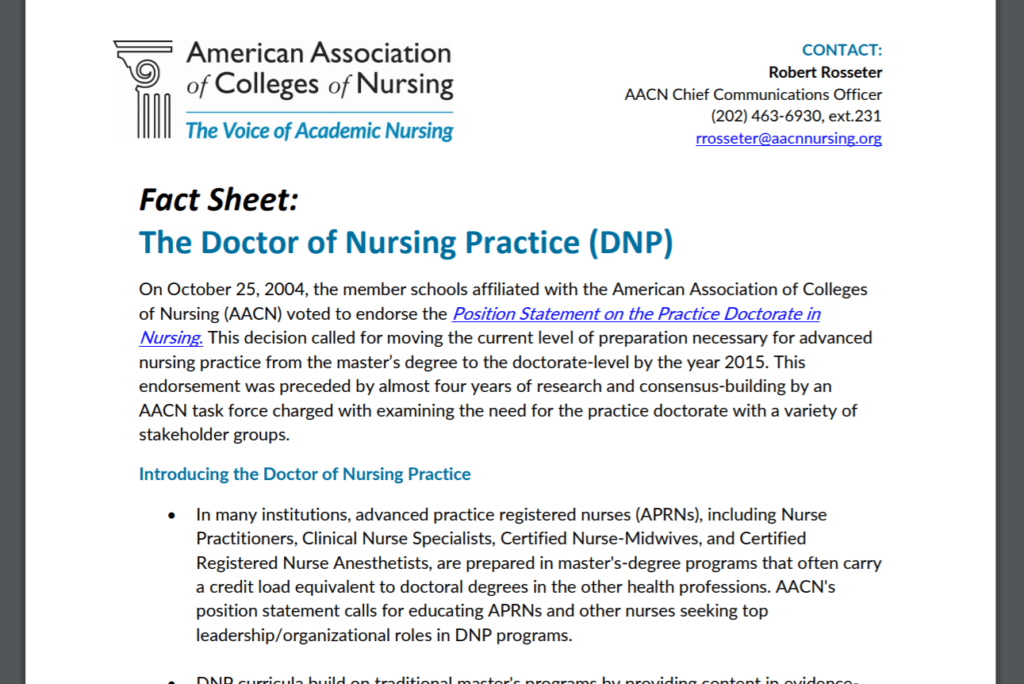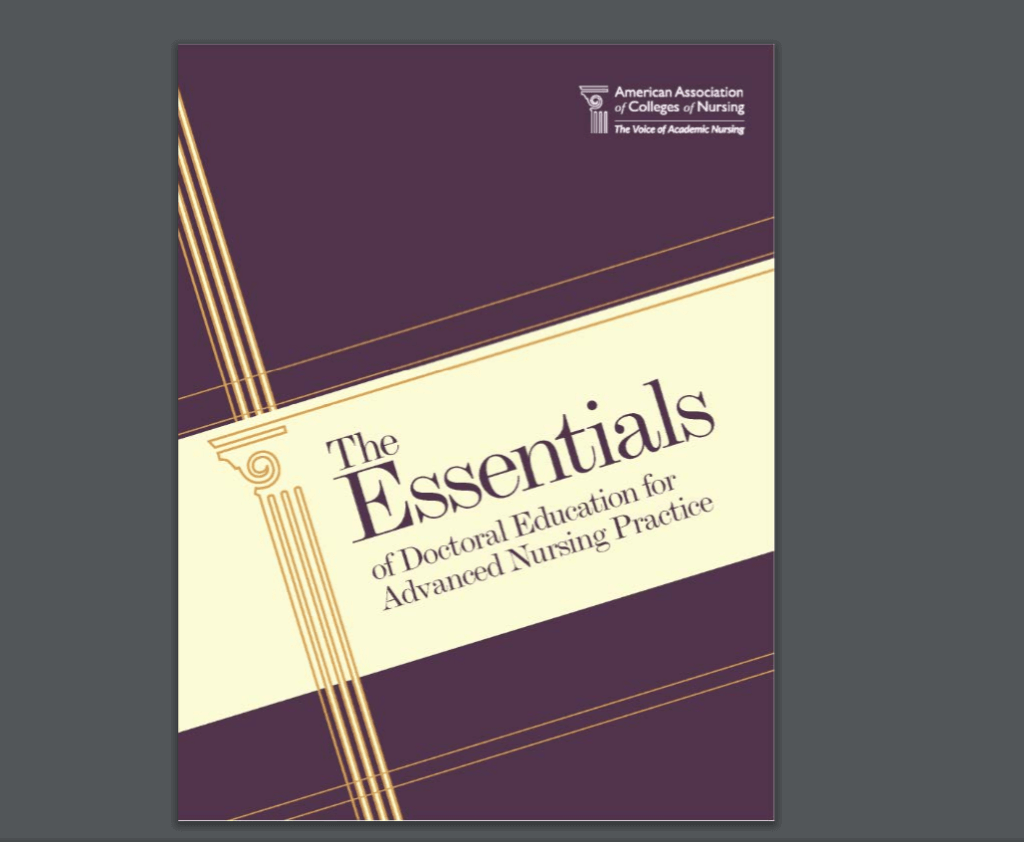What is a Doctorate in Nursing Practice (DNP) degree and how is it different from a PhD in Nursing?
A DNP is an advanced degree for nurses looking to pursue doctoral-level graduate education. The aim of DNP program is nursing practice, while the focus of a nursing PhD program is research, most often in an academic setting. When you earn a DNP, you can translate research into evidence-based practice in a clinical setting. In contrast, nurses with a PhD are prepared to plan, carry out, and evaluate the outcomes of nursing research.
Which degree is better? Only you can answer that question. It all depends on your interests and the focus of the nursing career path that you desire. Many health systems hire both PhD-prepared Nurse Scientists to conduct research along with DNP-prepared nurses to promote evidence-based practice. This strategy supports nursing excellence and is well aligned with the ANCC’s Magnet Recognition Program.
What kinds of DNP programs are available?
Depending on your focus area of interest, there are a wide variety of DNP programs that might suit you. For example, there are DNP programs specifically for Nurse Practitioners and other categories of Advanced Practice Registered Nurses (APRNs), specifically Clinical Nurse Specialists, Certified Registered Nurse Anesthetists, and Nurse Midwives. If you’re not an APRN, don’t worry—you still have plenty of options. There are also DNP programs in nursing leadership, education, public health, ethics, informatics, and public policy, to name the most common tracks. Some programs are completely online, while others are hybrid courses, requiring in-person classroom time and clinical experience. Check out the DNP program descriptions in your focus area to help you decide which type of program is best for you.
What type of educational preparation do I need to become a DNP?
You can apply for admission into a DNP program if you’re already a masters-prepared nurse. If you’re a bachelors-prepared nurse, you can also seek admission into schools that offer a combined master’s and DNP program that allows you complete both degrees at the same time. Some programs require that you have a specified type or amount of experience as a Registered Nurse before you apply. DNP programs for Nurse Practitioners and other Advanced Practice Registered Nurse roles may require a current APRN license to qualify for admission, unless the program offers a combined BSN to DNP option.
How can earning a DNP help me achieve my career goals?

Getting your DNP is a great way to enhance your professional growth while also expanding your career opportunities. If you’re an APRN, some certifying organizations will soon mandate a DNP to be eligible for board certification, which is a requirement for APRN licensure. If your focus is nursing leadership, the DNP will enhance your leadership knowledge base and give you a real advantage in the job market, especially for nurse executive-level positions. A similar case can be made for all other DNP program focus areas.
Doctoral-preparation shows a true commitment to advanced education and knowledge. The degree can lead to a salary increase in some organizations, either through moving into a higher-level position, or through achieving a milestone on an established career ladder. Check out the ANA job postings for DNPs in our Career Center to see current opportunities.







 Getting your DNP is a great way to enhance your professional growth while also expanding your career opportunities. If you’re an APRN, some certifying organizations will soon mandate a DNP to be eligible for board certification, which is a requirement for APRN licensure. If your focus is nursing leadership, the DNP will enhance your leadership knowledge base and give you a real advantage in the job market, especially for nurse executive-level positions. A similar case can be made for all other DNP program focus areas.
Getting your DNP is a great way to enhance your professional growth while also expanding your career opportunities. If you’re an APRN, some certifying organizations will soon mandate a DNP to be eligible for board certification, which is a requirement for APRN licensure. If your focus is nursing leadership, the DNP will enhance your leadership knowledge base and give you a real advantage in the job market, especially for nurse executive-level positions. A similar case can be made for all other DNP program focus areas.









